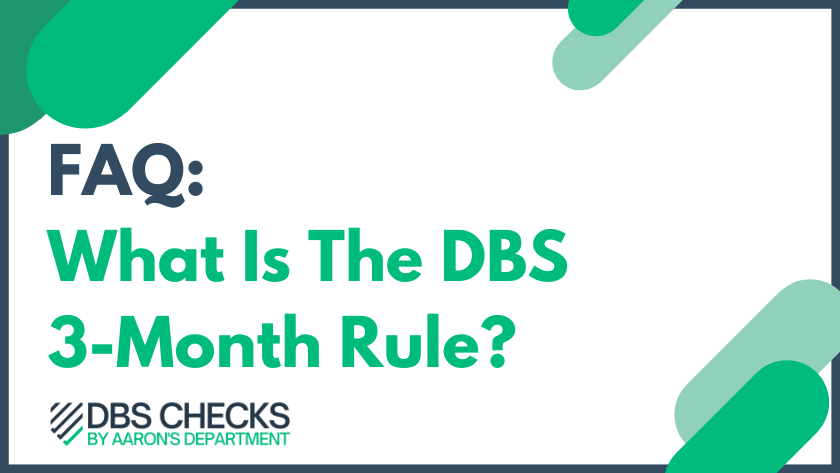So what is the 3-month rule for DBS Checks? The 3-month rule for DBS checks is a regulation outlined by the Department for Education in its “Keeping Children Safe in Education” 2024 guidelines. According to these guidelines (starting from page 59), if a staff member in a school has been absent from work for more than 3 months and hasn’t worked in another school during this period, they are required to undergo a new Enhanced DBS check before returning to their role.
What is the 3-Month Rule for DBS Checks? – Key Details
If a member of staff has been absent from work for over 3 months without working at another educational institution, they are treated as if they are a new hire. This means they must undergo a fresh Enhanced DBS check to ensure they are safe to work with children and vulnerable individuals.
What Is The 3-Month Rule For DBS Checks? – Exceptions
the 3-month rule for DBS checks does not apply to certain educational institutions. For example, 16–19 Academies, Special Post-16 institutions, and Independent Training Providers are exempt. In these settings, the original Enhanced DBS certificate from the staff member’s initial employment is considered sufficient, even after a 3-month absence.


What Is The 3-Month Rule For DBS Checks? – Tips & Tricks
The 3-month rule can be inconvenient, particularly for temporary staff, volunteers, and exam invigilators, as it often results in the cost of another DBS check. However, there are ways to navigate this requirement:
1. Break the 3-Month Absence with Training Days
One practical way to avoid the 3-month rule is by scheduling paid training days for staff. For example, if a temporary staff member attends a training session after 70 days of absence, this would effectively reset the 3-month clock, preventing the need for a new DBS check.
2. Use the DBS Update Service
Another effective solution is registering staff on the DBS Update Service. This service allows employers to monitor staff DBS records online and check if there have been any changes to their criminal history.
If no changes have occurred, the staff member’s existing DBS check can be accepted without the need for a new one, as long as it is the correct level for their role. If a change has been recorded, a new DBS check is required.
The DBS Update Service is a cost-effective alternative, especially for staff requiring frequent DBS checks.


Summary: What Is The 3-Month Rule For DBS Checks?
The 3-month rule applies to staff working in schools. If they stop working at the school for more than 3 months and don’t work at another school meanwhile, then they will need a new DBS check upon resuming work.
This is expensive and inconvenient, but it can be avoided by subscribing staff to the DBS Update Service, or resetting the 3-month period with a day of work, for example a training day.
Forward someone this article!
Further Reading
If you’ve found we have answered the question, What is the 3-month rule for DBS Checks? You may also find the below articles helpful:
- Guide to DBS checks for contractors working in schools
- Getting DBS checks for staff in schools
- Ofsted’s DBS check requirements
About The Author


Kellie Dawson
Kellie is our in-house legal expert when it comes to DBS checks. With a background in the legal sector, she has become a recognised authority in this area.
